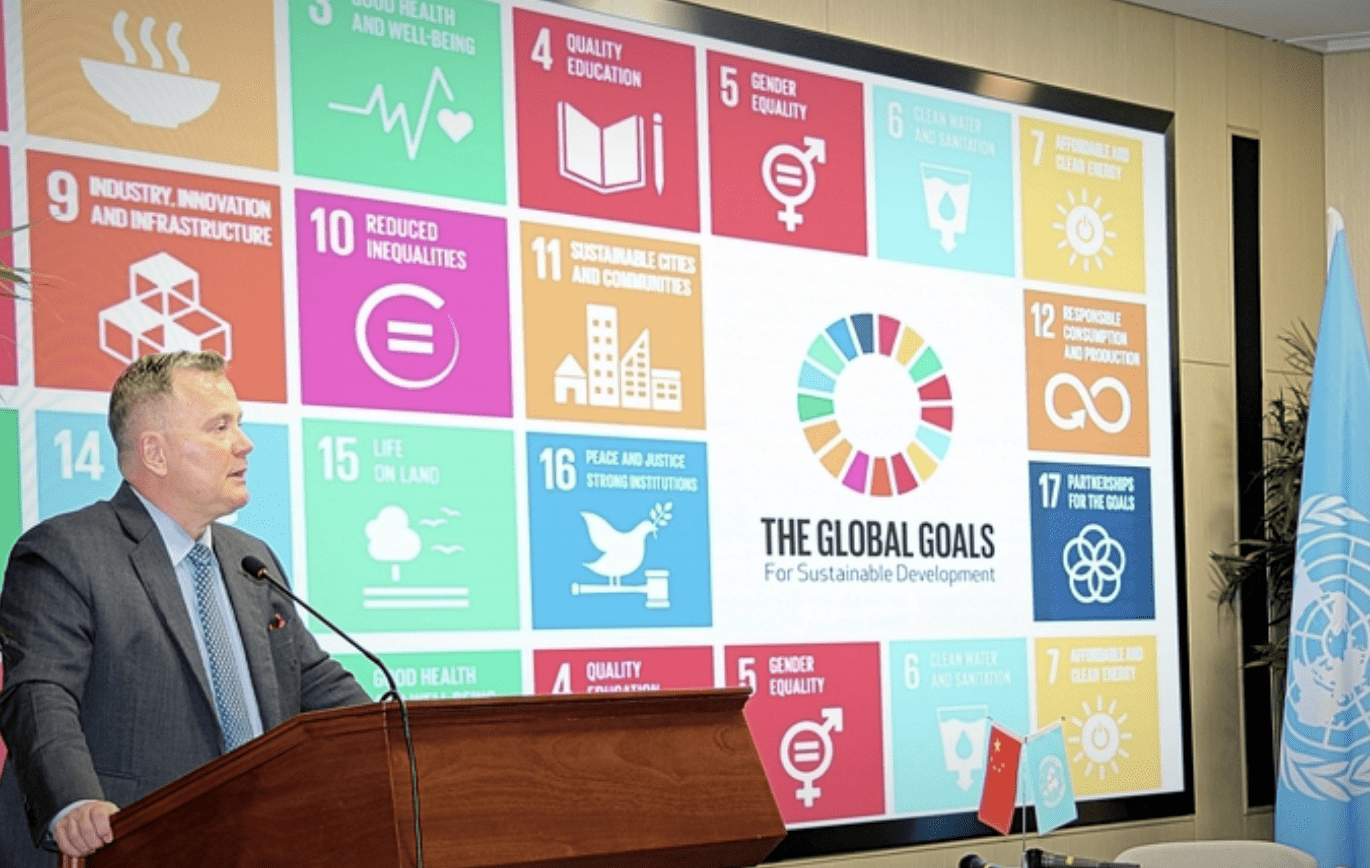Beijing, China, – Björn Andersson, Asia and the Pacific Regional Director of UNFPA – the United Nations Population Fund – has wrapped up a three-day visit to the People’s Republic of China, where he met senior government and academic leaders in the health, education and population and development sectors.
In meetings with senior officials from the Ministry of Commerce, the National Health Commission and China’s Population and Development Research Centre, he commended the country’s progress and called on the government to continue its crucial work to ensure sexual and reproductive health and rights for all.
“If China – currently the world’s most populous nation - succeeds in achieving universal access to sexual and reproductive health and reproductive rights, it will transform the global landscape – moving us closer to achieving the vision enshrined in the Global Goals for Sustainable Development and ensuring that no one behind,” noted Andersson.
Andersson’s visit, from May 9th to 11th, came as UNFPA prepares to mark 40 years of cooperation in China. He thanked the Chinese government and people for their support over the years and commended China’s efforts to share aspects of its rapid development with other developing countries.
“As both a global and regional leader, China plays a vital and growing role in promoting comprehensive approaches to sexual and reproductive health. It is vital that health and development policies include voluntary family planning, improved maternal health, prevention and treatment of sexually transmitted infections, reproductive cancers, and the promotion of gender equality and the elimination of harmful practices.”
Since UNFPA began working in China in 1979, the organisation has helped strengthen capacity to conduct demographic analyses and use data for policy planning. Later shifting attention to a comprehensive approach to sexual and reproductive health, including improving the quality of care and advocacy for informed choice. Over time, UNFPA expanded its work to cover new national priorities related to youth, urbanisation, China’s ageing population, gender-based violence and the distorted sex ratio at birth. In China, and everywhere, all of UNFPA’s work promotes the human rights of individuals and couples to make their own decisions, free of coercion or discrimination.
On May 10th Andersson visited the Tianjin Central Hospital of Gynaecology and Obstetrics, where UNFPA assists in a midwifery training programme and wider healthcare reform efforts. He also visited the Tianjin Nankai District Elderly Care Centre. Tianjin, a 15 million-strong metropolis in China’s north east, is stepping up measures to improve health-care systems for women and children and to develop elderly care facilities through public-private-partnerships.
Andersson also visited Peking University’s Health Science Centre, where he delivered a speech titled “Leaving no one behind: Universal sexual and reproductive health for all, in Asia and the Pacific.” He also met with senior UN officials and Anna Lindstedt, Sweden’s Ambassador to China.
“Our mission is to achieve three transformational results: Zero preventable maternal deaths, zero unmet need for family planning and zero gender-based violence and other harmful practices against women and girls,” noted Andersson in his speech at Peking University.
“Achieving universal sexual and reproductive health is a pre-requisite for sustainable development, and it requires that we place our focused attention on eradicating poverty, achieving gender equality and promoting behavioural change. In all of this, UNFPA counts on China’s support.”


